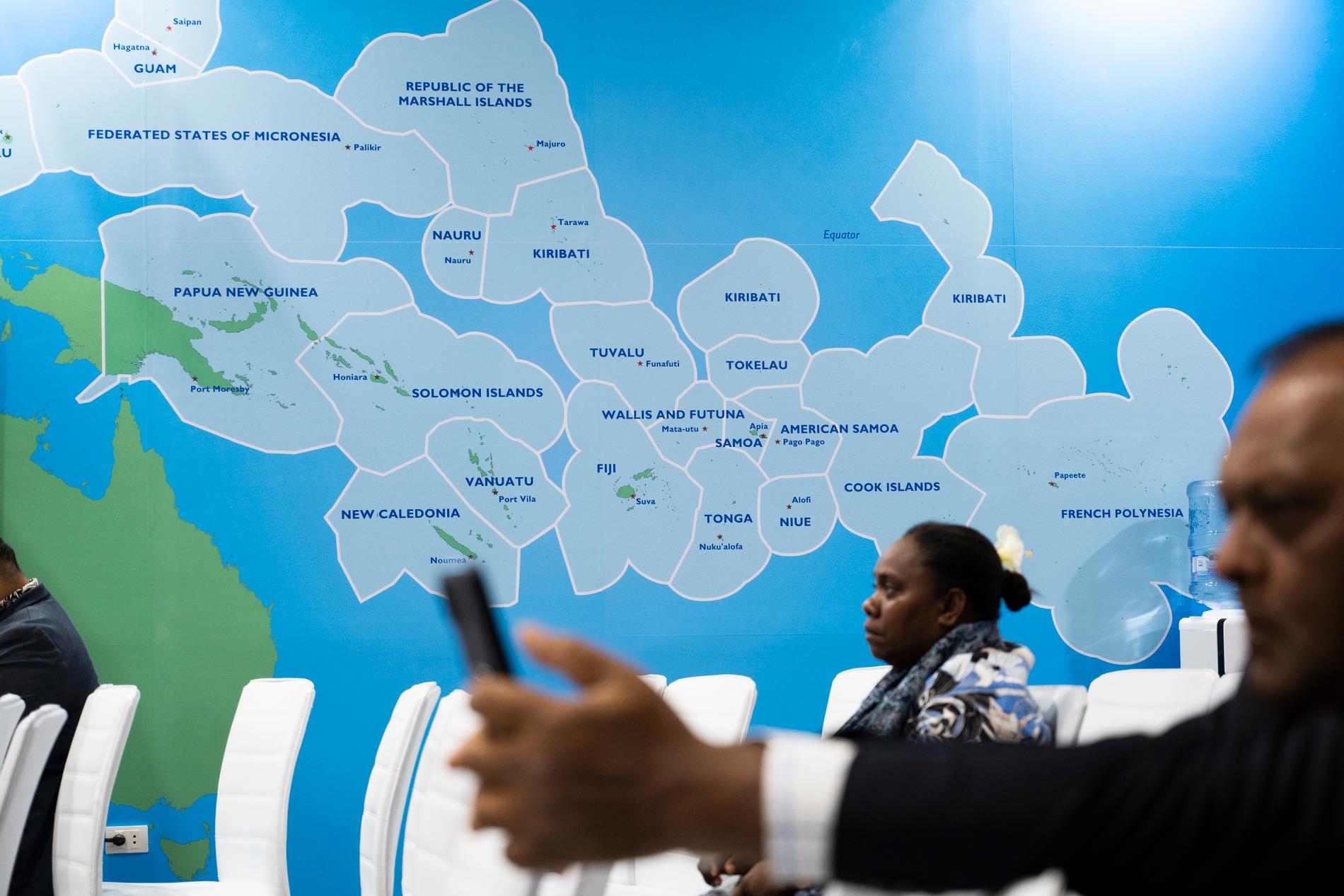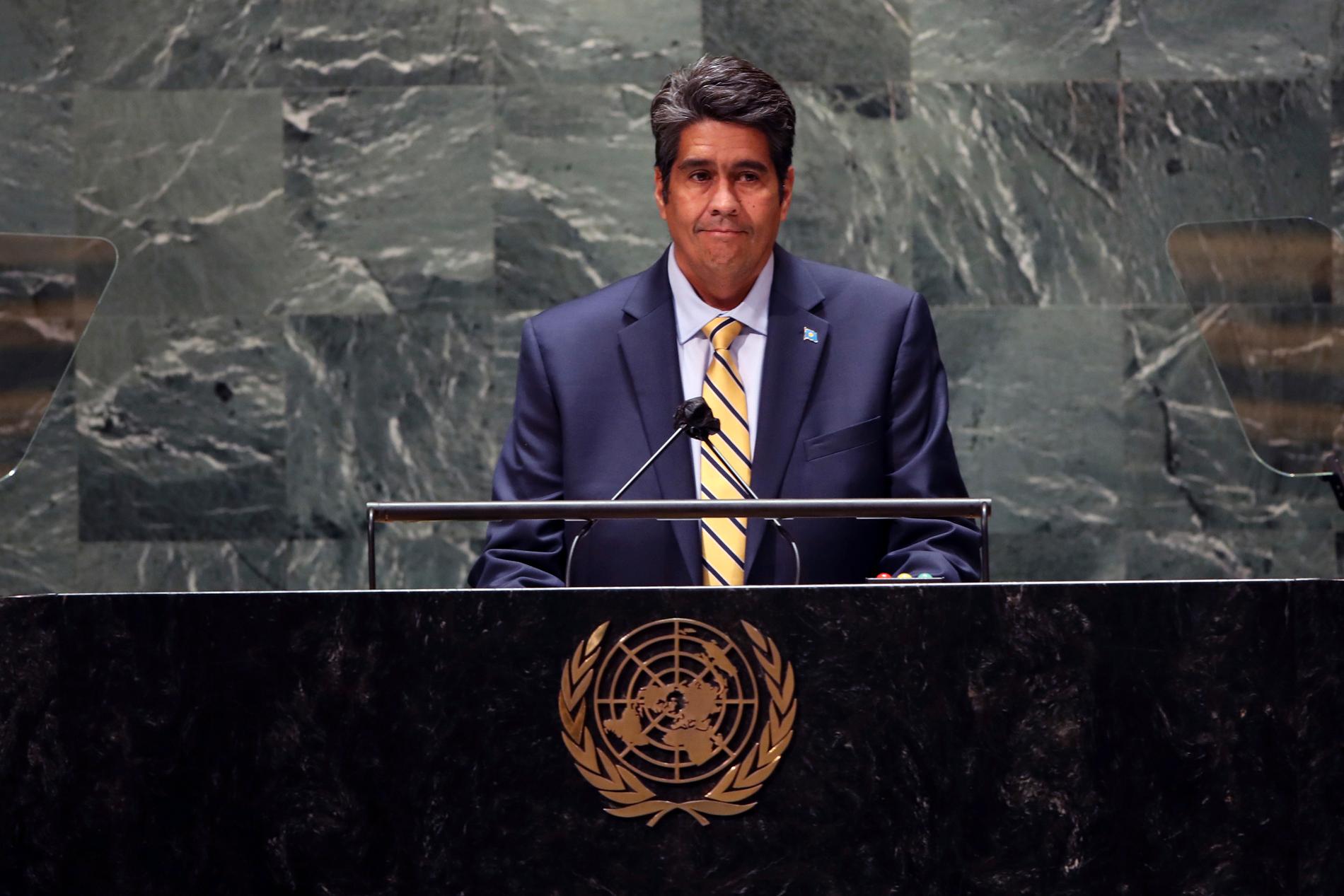COP27
Total deadlock between rich and poor countries:
"Don't make the war in Ukraine an excuse"
Of:
Annica Ögren
Published: Less than 2 hours ago
NEWS
The draft agreement that was finalized on Thursday during the COP27 climate summit in Egypt was prompted by "total deadlock" between rich and poor countries.
Among other things, the issue of the rich world's climate debt and China's reluctance to limit global warming to 1.5 degrees were discussed.
"Don't make the war in Ukraine an excuse," said the president of the island nation of Palau, Surangel Whipps Jr.
The meeting was feared to drag on, but the unusually long draft of 20 pages was finally completed.
In the draft final agreement that was presented on Thursday, reference is made to several goals that were already formulated during last year's climate meeting in Glasgow. Among other things, the goal of phasing out certain coal power and certain fossil subsidies.

There were "total deadlocks" between poor and rich countries in connection with the COP27 climate meeting in Egypt. Photo: Henrik Montgomery/TT
However, there are no direct references to gas or oil, nor does it call for the phasing out of all climate-damaging fossil fuels, which critics describe as a failure, TT reports.
Nor is there anything about a new fund that will compensate the most vulnerable countries for climate-related damage and losses, which according to TT is described as a sensitive issue.
The rich world's debt to the poorest countries thus came into focus during the two-week meeting and completely divided the participants.
Unable to reach agreement
During the meeting, rich and poor countries ended up in "total deadlock" on the question of how much money the rich countries should pay for having caused the climate crisis.
The United States is one of the countries that has long opposed that idea for fear of being held financially responsible for the carbon dioxide emissions it has pumped into the atmosphere for decades, the AP reports.
Other rich countries were softer in their appearance and admitted that some form of payment will have to be made, the only question is what.
According to SVT:s reporter on the spot, during the meeting, representatives from rich countries have also started to make counterclaims to the poorest countries that they are, for example, affected by corruption.
German Foreign Minister Annalena Baerbock admitted that an agreement on the matter may not be reached during the meeting in Egypt.

Surangel Whipps Jr, president of Palau, said during the meeting that the climate crisis is eating up the island's coastlines and urged the other participants in the meeting not to "hold them hostage to fossil fuels" Photo: AP
Island nations reacted strongly
During the meeting, China said it does not want the final document to explicitly state that the pain threshold is 1.5 degrees of warming, prompting reactions from Pacific island nations that also attended the meeting.
Among other things, the Prime Minister of the island state of Palau, Surangel Whipps Jr., described that the climate crisis is eating up the island's coastlines and destroying vital infrastructure through extreme storms.
- We must no longer be held hostage to fossil fuels. Don't make the war in Ukraine an excuse for us to fall back on our communities in the transition to renewable energy, said Surangel Whipps Jr, who also spoke strongly at last year's meeting in Glasgow:
"It would be better if you bombed us, than that we now slowly sink into the sea," he said then.
However, the draft final document emphasizes the importance of continuing efforts to reach the Paris Agreement's goal of limiting global warming to well below 2 degrees, compared to pre-industrial times, and preferably 1.5 degrees.

Inga kommentarer:
Skicka en kommentar